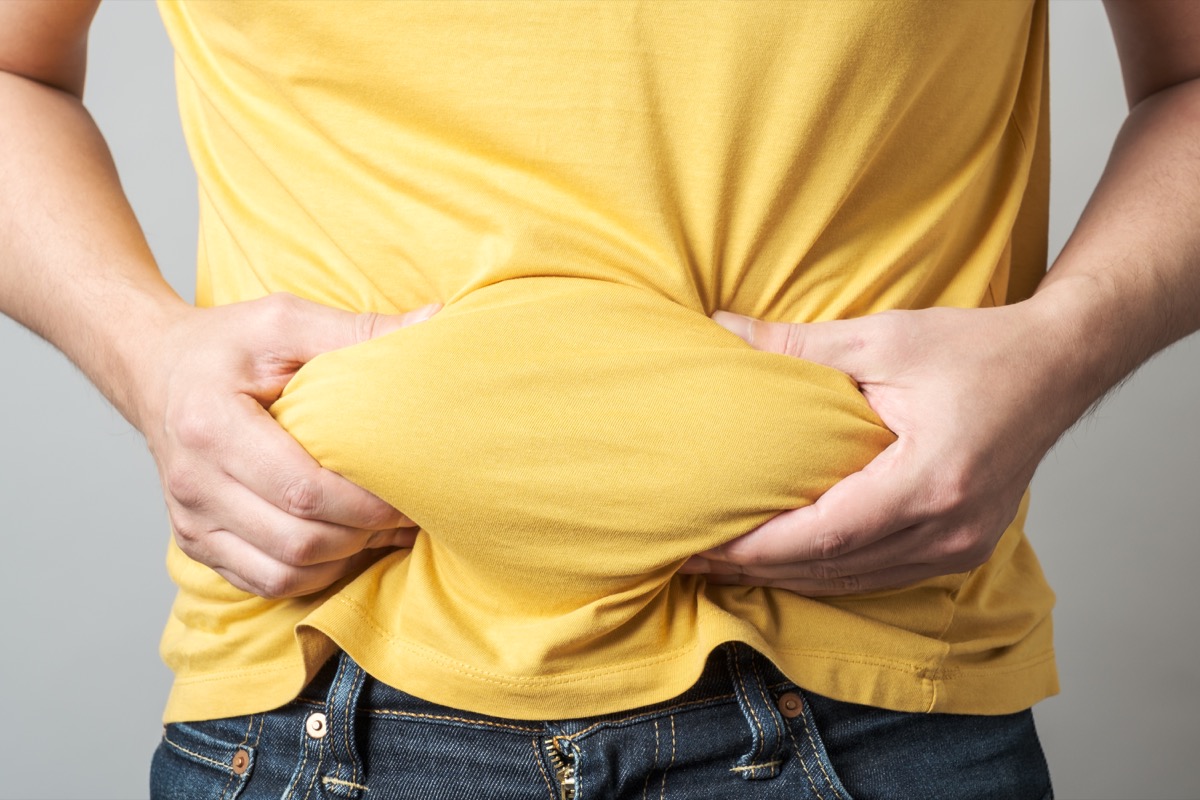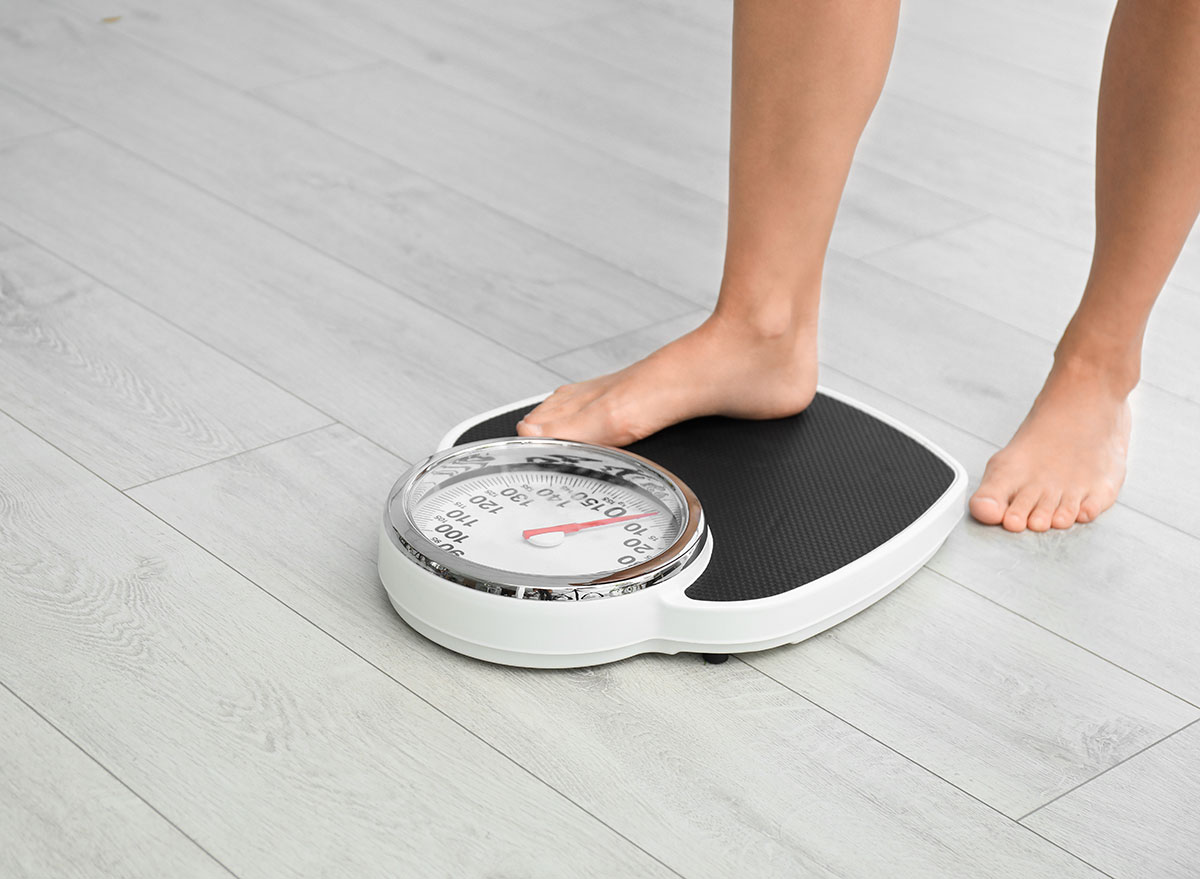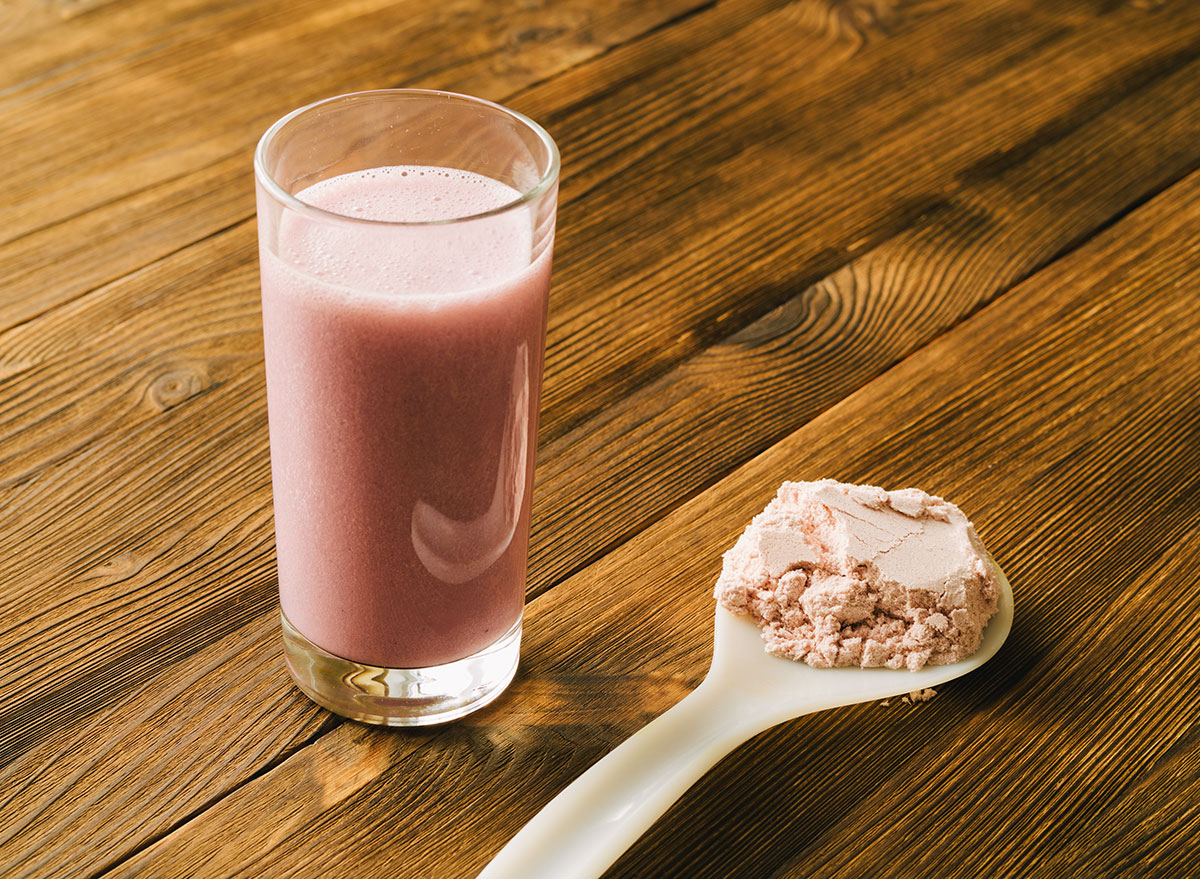Surefire Ways to Lose Visceral Fat, Say Experts

Belly fat—also known as visceral fat—isn't just unsightly. It's seriously hazardous to your health. This type of fat lies deep within the abdomen, under the muscle, where it nestles around vital organs like the intestines, liver and pancreas, releasing toxic substances that raise your risk of chronic diseases like cancer, heart trouble and diabetes. Here are six of the most effective, science-backed ways to lose visceral fat. Read on to find out more—and to ensure your health and the health of others, don't miss these Sure Signs You've Already Had COVID.
Reduce Your Stress Levels

Chronic feelings of stress cause the brain to produce more cortisol, and stressing out can lead to "comfort eating" high-fat and sugary foods. The combination is a quick shortcut to gaining belly fat, says a study published in The Annals of the New York Academy of Sciences.
RELATED: Ways You're Catching Covid Without Knowing It
Lose Weight

Perhaps the easiest way to reduce visceral fat is to lose weight. "Weight loss alone can effectively reduce visceral fat," says W. Scott Butsch, MD, an obesity medicine specialist with the Cleveland Clinic. "By losing 10% of your body weight, you may lose up to 30% of your body fat."
RELATED: Popular Habits That Are Wrecking Your Body, Say Experts
Do This Kind of Exercise

Changing up your diet alone won't slash belly fat; exercise is critical. According to a 2020 study published in the journal Nutrients, exercise reduces visceral fat even if you don't lose weight. That's because it lowers circulating insulin (which tells the body to hang on to fat) and tells the liver to burn nearby visceral fat deposits. Moderate-intesity exercise combined with strength training seems to work best—a 2021 review of studies found that resistance training reduces visceral fat in healthy adults.
RELATED: The #1 Cause of Aging Poorly, Says Science
Avoid Added Sugar

Visceral fat thrives on sugar. "Fructose, or sugar, causes fat cells to mature faster, specifically in the visceral fat," says the Cleveland Clinic. Reduce the amount of sugar in your diet by dumping sugary drinks and juices, refined grains, baked goods, and processed foods, and watch your waistline shrink.
RELATED: Everyday Habits That Lead to Aging
Get Plenty of Protein

Several studies have found that a high-protein diet will burn belly fat and help keep it off. One of the latest was published this summer in the journal Scientific Reports: Researchers found that a test group that took a protein supplement along with a mildly calorie-restricted diet lost more visceral fat than a group that took a placebo. In addition, the test group's gut microbiota was activated by the protein supplement. Some studies have connected healthy gut bacteria to the loss of visceral fat, regardless of what you eat.
RELATED: The #1 Worst Habits for Your Heart, Say Doctors
Get Enough Sleep

Researchers at Wake Forest University found that dieters who slept five hours or less every night put on 2.5 times more belly fat than people who got adequate sleep. Experts say poor sleep alters the production of leptin and ghrelin, two hormones that regulate appetite, and that can increase feelings of hunger. Not sleeping enough can also increase the production of cortisol, a stress hormone that tells the body to hold onto fat around the abdomen. Experts like the National Sleep Foundation say you should aim for seven to nine hours a night. And to get through this pandemic at your healthiest, don't miss these 35 Places You're Most Likely to Catch COVID.








